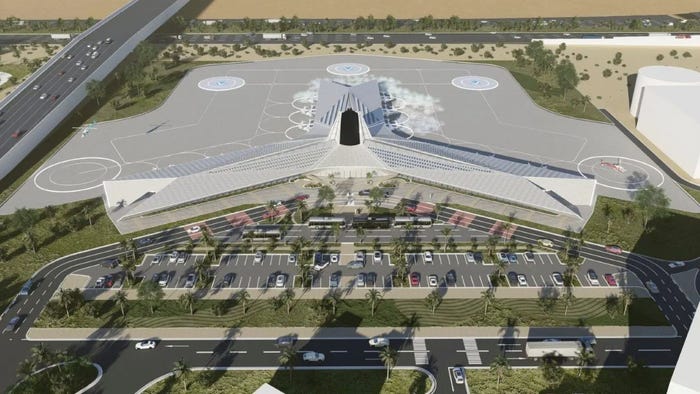Elon Musk Calls AI Force for Good at AI Safety SummitElon Musk Calls AI Force for Good at AI Safety Summit
U.K. Prime Minister Rishi Sunak interviews Elon Musk on a range of issues - and gets some surprising answers
.png?width=1280&auto=webp&quality=95&format=jpg&disable=upscale)
In a conversation that at times veered into the unexpected, U.K. Prime Minister Rishi Sunak sat down to interview Elon Musk at the end of his AI Safety Summit this week.
The hour-long conversation was streamed on X (formerly Twitter) in which a relaxed Sunak queried Musk on a wide range of issues and also took questions from the audience.
Asked about his seemingly contradictory stances on AI – Musk invests in and uses AI extensively and yet is vocal about the technology’s dangers – he said that “on balance, I think AI will be a force for good most likely.” But he remains cautious because the probability of it going bad is “not zero.”
Musk likened AI to a “magic genie” that could keep giving one wishes. He said a proliferation of AI systems that will be able to do “everything” will lead to an “age of abundance” with no scarcity in goods and services. He said people will no longer have to work but instead could choose to work – or compete in sports to have purpose.
Instead of people getting a universal basic income (or a minimal amount of funds to survive), they will get a “universal high income,” Musk said.
Another area AI can be beneficial is as a social companion. “If you have an AI that has memory and remembers all your interactions and has read everything … you’ve ever done, … you will actually have a great friend.”
However, humanoid robots do pose a safety concern because, unlike an autonomous car, they can chase people anywhere, Musk said. “You can run up a flight of stairs and get away from Tesla.”
Therefore, robots should have a hardwired “off switch” in case they go rogue, he said.
Asked where the U.K. stood on AI, Musk also said the two leading centers of AI development are the San Francisco Bay Area and the London area. The countries at the forefront are the U.K., U.S., and China.
To which Sunak said he got flak for inviting China to the AI Safety Summit. “It was not an easy decision. A lot of people criticized me for it. And you know, my view was, if you’re going to try and schedule a serious conversation, you need to (do it).”
Musk opined that the single biggest objection to AI regulation or safety controls that he hears is, ‘well, China's not going to do it and therefore they will just jump into the lead and exceed us.’ But actually, he said, China is willing to participate in AI safety.
“Thank you for inviting them,” he told Sunak. “When I was in China earlier this year, the main discussion in the leadership of China was AI safety, saying this is really something that they should care about, and they took it seriously, … which is great. Having them here (at the summit), I think, was essential.”
Sunak said China signed the same communique that everyone did on collaborating to ensure guardrails around AI.
Then Sunak asked for Musk’s thoughts on open sourcing AI models. Musk said open source algorithms tend to lag closed source by six to 12 months. “Given the rate of improvement there's actually quite a big difference between the closed source and the open … and that might be actually an okay situation.”
However, “I think it's somewhat inevitable there'll be some amount of open source. I guess I would have a slight bias towards open source. At least you can see what's going on. If it was a closed source you don't know what's going on. That said, with AI, even if it's open source, do you actually know what's going on?”
About the Author
You May Also Like
.png?width=100&auto=webp&quality=80&disable=upscale)
.png?width=400&auto=webp&quality=80&disable=upscale)




